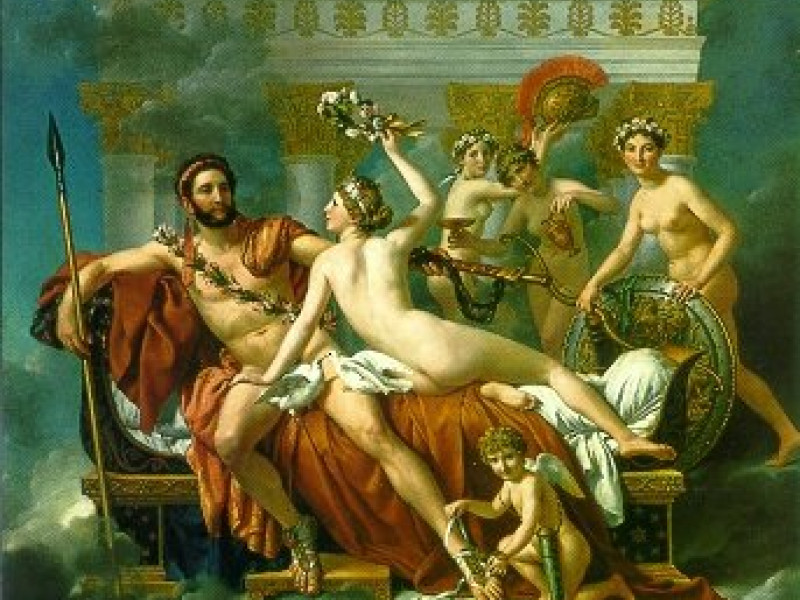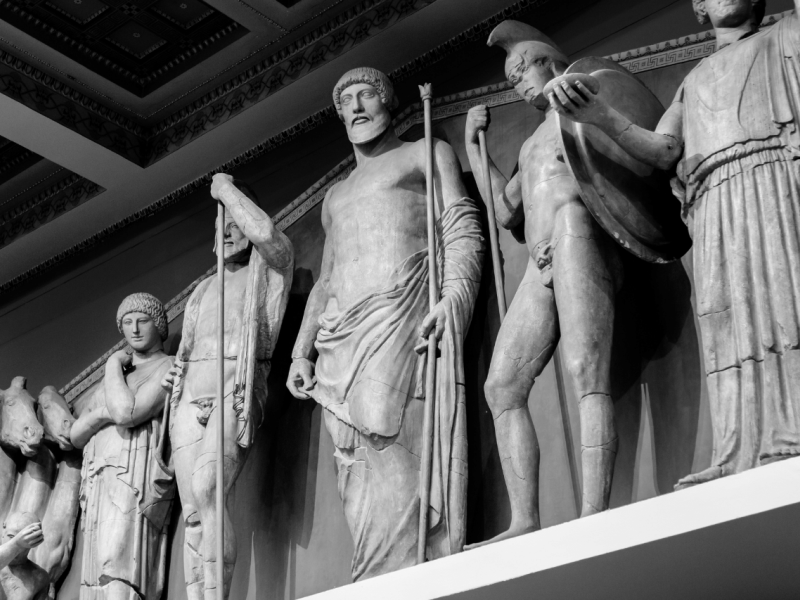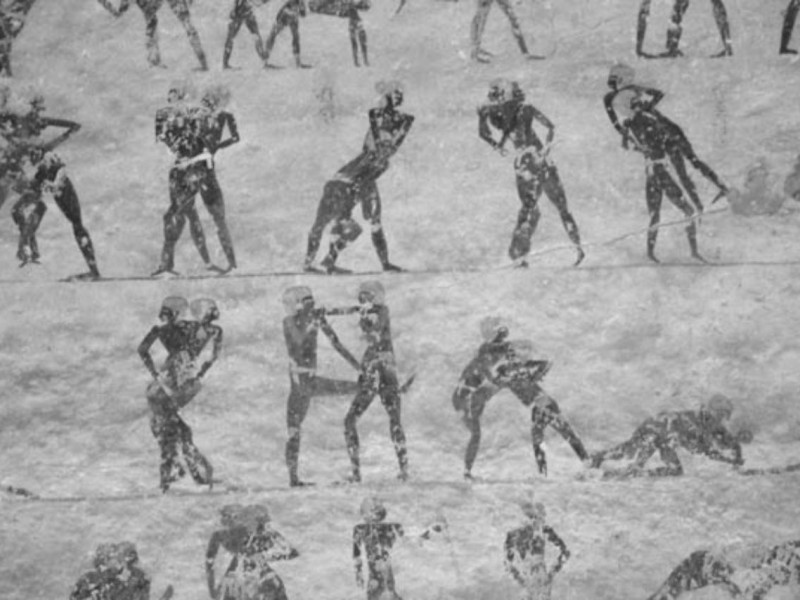Panhellenic Games
The ancient Greeks were known for their robust athletic skills and training. Homer represented most of the heroes as great warriors and athletes. The need to show off their physical appearance and their manly skills in all manner of sports was mostly the pastime of aristocrats and warriors. Portrayals of the Greek gods in art were seen with powerful and perfect physiques, and often youthful like that of the Greek sun god, Apollo.
Strength, stamina and speed were of utmost importance to the Greeks. Through exercising and competing, the Greeks hoped to look almost godlike in appearance.
In Greece, four Panhellenic Games were established. Although these games were set some time in the early 1st millennium BC, some writers placed their establishment before the arrival of the Dorians, Ionians and Aeolians in Greece, the ancestors of the modern Greeks. These writers set them in the Bronze Age or the mythical Heroic Age, the time of the Mycenaean and Minoan empires.
Of the four games, the Olympic Games became the most important and sacred, where hostilities between two warring city-states were temporarily curbed during the games, so that all men could compete (except for foreigners, women and slaves).
The usual events included footraces, jumping, discus and javelin throwing, wrestling, boxing and chariot races. The victor in a contest was usually awarded a crown of wild olive, celery or parsley.
The Pythian Games introduced music and singing contests. The Isthmian Games and Nemean Games held similar contests as the Pythian Games, with both athletic and music competitions.
There was only one extra "Games" which was different from the others. The four great games were events that only men could compete in. So there was one set of Games which were only held for women competitors, and it was known as the Heraean Games. It was named after the goddess Hera, which the games honoured. Historically, it is possible that the Heraean Games were older than the others.
There were festivals where games and contests were held in various parts of Greece, but these tended to be more local, such as the Panathenaea in Athens and Delia on the island of Delos. See the previous article on Greek Festivals.
Then, there were also games that were only held once, such as the funeral games for a hero or ruler, just after their cremation. Despite the funeral games being smaller than the Panhellenic Games, they were more widespread. In Greek and Roman mythology, games were sometimes held after a person's funeral.
The Nemean Games were an exception. The Nemean Games actually started out as funeral games for the infant Opheltes, before they became a major event that was held every five years in Nemea.
Perseus competed in the funeral games, during which he accidentally killed his grandfather Acrisius, which thereby fulfilled a prophecy. Great funeral games were held for King Pelias of Iolcus in which many heroes took part, including a woman competing for the first time; the heroine's name was Atalanta. A funeral game was also given in honour of Achilles, but this had tragic consequences when Ajax contested against Odysseus for the armour of Achilles.
Plenty of details were given regarding the funeral games for Patroclus, friend of Achilles, in the Iliad, and that of Anchises, Aeneas' father, in the Aeneid. For the funeral games of Patroclus, Achilles actually sacrificed twelve Trojan captives along with twelve horses. Although sacrifices of animals were normal for such a funeral, human sacrifices weren't.
Olympic Games
Location (Dedications): Olympia (Heracles the Dactyl or Zeus)
The Olympic Games were the most famous of the four Panhellenic games. The Olympics were held in Olympia in Elis, every four years, traditionally beginning in 776 BC. The games were probably invented before the year 776 BC, but that was the year when the names of winners of the competitions were recorded for the first time. Victors of certain events were awarded a crown of olive, and had their head anointed in olive oil.
According to Greek myth, the Olympic Games were invented by a Cretan youth named Heracles the Dactyl some time before the Deluge (do not confuse him with the hero Heracles). Heracles the Dactyl competed against his brothers in various contests. A different myth says that Zeus invented the Games when he wrestled against his father Cronus, in the war against the Titans, though I would find this highly unlikely.
During the Olympic Games, weapons were put aside and wars were suspended for the occasion, so there was a temporary peace whenever the games were held.
The modern Olympic Games were first established in 1896, held first at Athens. Traditional contests were held and new events were introduced.
Pythian Games
Location (Dedications): Delphi (Apollo)
The Pythian Games were held every four years in Delphi to commemorate Apollo's victory in slaying the giant serpent or dragon, Python, which guarded the oracle. According to Hyginus, it was actually funeral games that Apollo instituted for the honour of Python. The Pythian Games also held music contests as well as athletic contests. The victor was awarded with a crown of laurel.
Nemean Games
Location (Dedications): Argos (Opheltes)
According to the myth, the Nemean Games were held in honour of the infant Opheltes who was killed by snakebite, in Nemea. The event was organised by King Adrastus of Argos, who was on his way to war against the city of Thebes with six other Argive leaders (see Seven Against Thebes). The Nemean Games at first were just a funeral game for Opheltes, but they were held every five years, where the victor received a crown of celery.
Isthmian Games
Location (Dedications): Corinth (Poseidon)
The Isthmian Games were established in Corinth in honour of the great sea god, Poseidon. Athletic and musical contests were held every two years. The Isthmian Games were said to have been started by its king, Sisyphus, though another legend said that Theseus might have founded the Games. Like the Nemean Games, the victor received a crown of celery.
When Athamas, Sisyphus' brother, and Ino the daughter of Cadmus were inflicted with madness by Hera for harbouring Dionysus, Athamas killed his eldest son, while Ino leaped into the sea with her younger son, Melicertes. Some said that Melicertes was transformed into the sea god, Palaemon. Others said that his body was carried to Corinth by a dolphin, and then Sisyphus found and buried his nephew's body. Sisyphus established the Isthmian Games in honour of Melicertes.
Heraean Games
Location (Dedications): Olympia (Hera)
The Heraean Games were held every four years in Olympia in honour of Hera, in which the competitors were young women or girls. It was said to have first been introduced by Hippodameia, the wife of Pelops. Like the Olympics, the victor was awarded with a crown of wild olive. Historically, the Heraean Games may well be older than the Olympics and the other three games.
By Jimmy Joe






